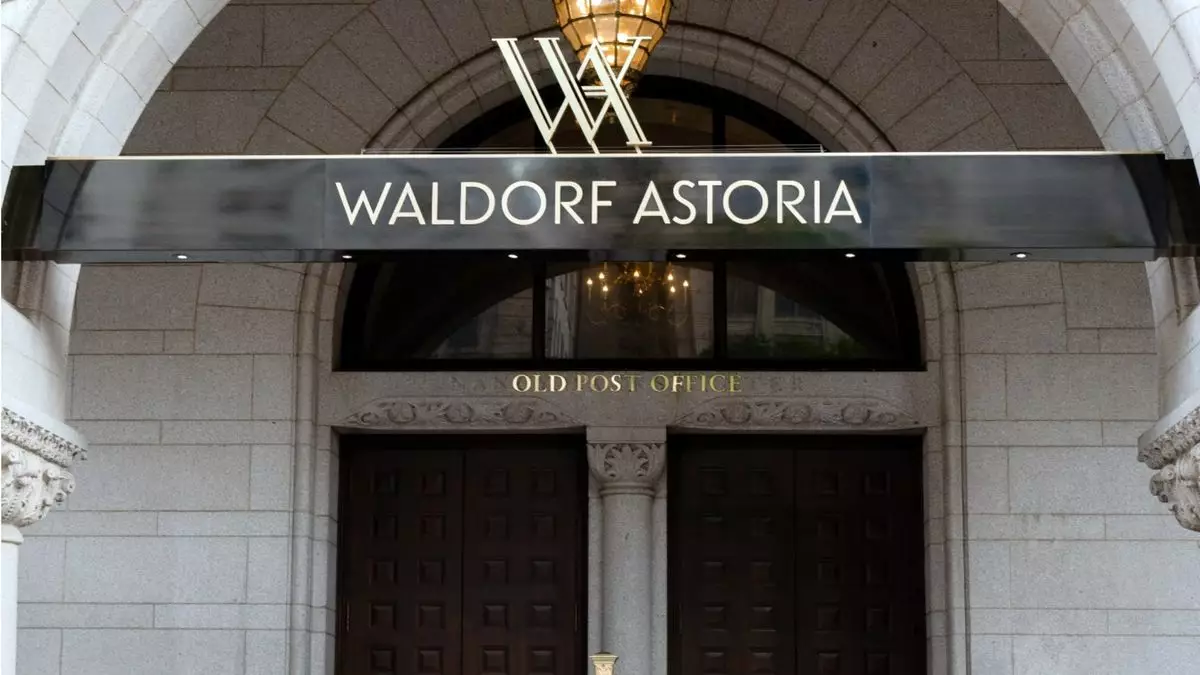In a significant turn of events surrounding its business ventures, the Trump Organization is reportedly in the early stages of negotiations to reacquire the lease for its erstwhile hotel property located in Washington, D.C. This hotel, once known as the Trump International Hotel, has transitioned under new branding and is currently operated as a Waldorf Astoria. This potential move raises questions not only about the organization’s strategy but also about the implications for its future direction and its historical connection to the former administration.
Sources from the Wall Street Journal indicate that Eric Trump, an executive vice president within the Trump Organization, has been in discussions with representatives from BDT & MSD Partners, the current overseers of the property’s lease. The backdrop to these negotiations is one of financial turmoil; the property changed hands following a default and subsequent foreclosure process earlier in the year by the previous leaseholder, CGI Merchant Group. This shift illustrates both the volatility of luxury hotel operations amidst broader economic concerns and the continuing fluctuations within the real estate market.
The Trump Organization originally sold the hotel’s lease to CGI in 2022, which not only altered the brand’s identity but also removed the Trump name that had become synonymous with the property since its opening in 2016. The decision to revert back to reclaiming the lease signals a readiness to re-enter a competitive hospitality landscape that had once provided Trump with a significant platform for business and political networking.
The hotel itself occupies a historic site—housed in the Old Post Office building in D.C.—and is noted for its impressive offerings, including spacious accommodations and high-end amenities. Among its features are expansive suites like the 4,000-square-foot Presidential One Bedroom Suite and the even larger Waldorf Townhouse. This indicates a commitment to premium hospitality experience that can attract affluent guests and high-profile events.
During the Trump administration, the property served as a central hub for Republican lawmakers and influential lobbyists. However, the hotel faced ongoing scrutiny regarding potential conflicts of interest and ethical implications tied to its operations under Trump’s leadership. This history may play a pivotal role in shaping public perception during any attempted re-acquisition of the lease, adding layers of complexity to the Trump Organization’s ambitions.
If negotiations are successful and the Trump Organization is able to reclaim the lease, it could signal a strategic pivot back into hospitality that leverages both political connections and brand recognition developed over years. The decision to pursue this lease might be seen as an effort to solidify its standing in D.C., a city always ripe for political and business opportunities.
The re-emergence of the Trump Organization in the hotel industry could open new avenues for financial recovery and brand recovery, but it also places the organization under the microscope in a new political landscape. It remains to be seen how this endeavor will influence the broader narrative surrounding the brand and its notorious legacy in American politics and business.


Leave a Reply